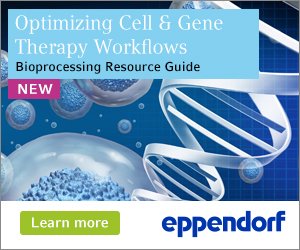Genetic link between aging brain and brain cancers found by Israeli scientists
July 13, 2021 | Tuesday | News
Using computational and cell biology techniques, such as CRISPR scientists identified a protein increasing TP73-AS1 gene activity in response to chemotherapy and is also known to activate many genes in the aging brain

Israeli university- Ben-Gurion University of Negev (BGU) scientists have found that a gene activated in glioblastoma, a type of brain cancer, is also partly responsible for aging in our brain. Their findings were published in the peer-reviewed journal Aging late last week.
"Studying cancer teaches us about aging and vice versa," says lead researcher Dr. Barak Rotblat of the Department of Life Sciences in the Faculty of Natural Sciences and the National Institute for Biotechnology in the Negev (NIBN). Rotblat'sresearch has focused on a new class of genes coding for long noncoding RNA. Classically, gene products are RNA which code for proteins. However, while there are 20,000 “classic" protein coding genes, scientists now know that there are at least 20,000 genes whose products are long noncoding RNA.
“For the past few years, we have been studying one of these genes, TP73-AS1, and found that it is highly active in both pediatric (medulloblastoma) and adult (glioblastoma) brain cancers. Importantly, not only is this gene highly active in brain cancer, but it also contributes to the aggressiveness of the disease. In glioblastoma, high levels of TP73-AS1 in tumor cells provide protection against chemotherapy," explains Dr. Rotblat.
Using computational and cell biology techniques, such as CRISPR, the Rotblat lab identified a protein increasing TP73-AS1 gene activity in response to chemotherapy and realized that this protein, known as YY1, is also known to activate many genes in the aging brain. Interestingly, aging and glioblastoma are also known to be linked, because glioblastoma is more aggressive in older people. However, the genes linking the aging brain to glioblastoma were not known.
“Once we found that YY1 increases the activity of TP73-AS1, we asked if, like YY1, TP73-AS1 is also active in the aging brain and found that this is indeed the case. Now, we are excited by the prospect that by studying TP73-AS1 and the molecular pathways it interacts with, we can learn about cancer and aging in the brain," Dr. Rotblat says about directions for future studies.
The research was supported by the Israel Science Foundation, by the Israeli Cancer Association, the NIBN, The David and Inez Myers Foundation, and by the Ministry of Science and Technology.






